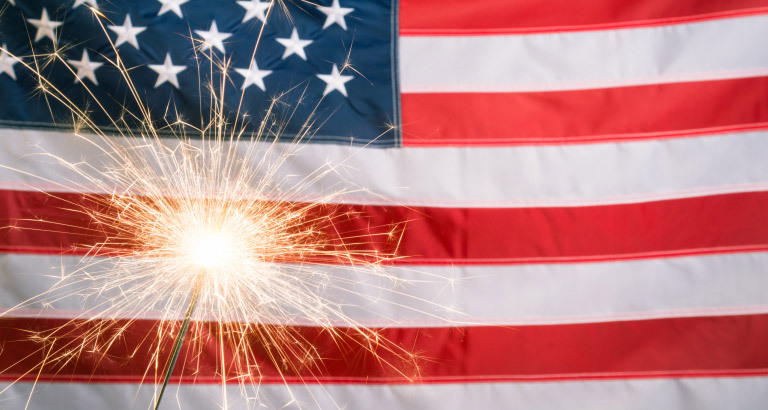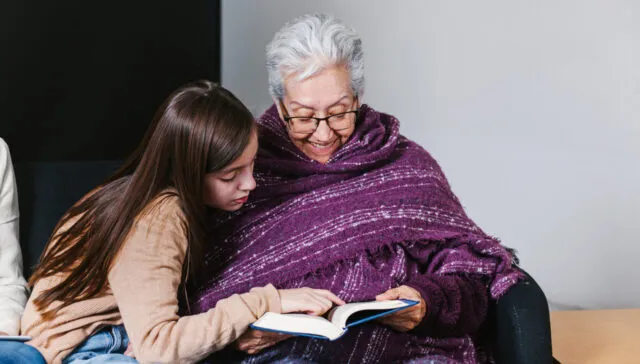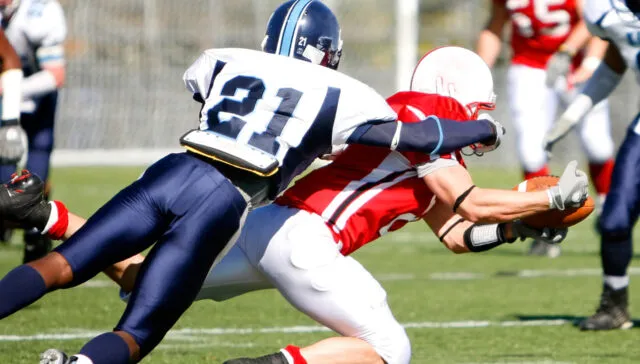Triggering veteran trauma and PTSD

For some, July 4 celebrations may reveal underlying needs.
As we near Independence Day, many towns in the United States will inevitably celebrate the holiday with some spectacle of fire, lights, sizzles, and explosions. Fireworks have been a piece of our nation’s history since they were introduced following the signing of the Declaration of Independence in August of 1776. A tradition that lives on nearly 250 years later.
And while it seems innocent enough—a communal gathering of excited, smiling faces—these displays may have a negative impact on the emotional well-being of some of our most celebrated community members; our service- men and women who have valiantly served our country and enabled us to enjoy such freedoms.
I remember back to July of 2003—heading home from my college apartment to get together with family and friends at the local lake where the fireworks show has commenced since before I was born. It was tradition to gather, sporting our finest reds, whites, and blues, and a varied assortment of glowing accessories. Fried dough, bloomin’ onions, and slices of pizza were all inevitably a part of the mix. Friendly conversation and camaraderie were the staples of the festivities. All tied together by the culmination of colorful explosions in the sky.
I was very excited about this particular occasion because it would be the first time in a year that I’d get to see my best childhood pal. He was home on leave from a year-long tour of Iraq. And, with that, the bear hug and simultaneous smiles brought us right back to a more innocent time in our lives. It was great to see him. Things felt normal-ish. Until the fireworks began… My friend’s face went from joyful glee in the company of missed loved ones to utter terror and shock. He ducked, ran, and dove into his car. I tepidly joined him in the front seat and asked what was up.
“I’m sorry man, I’ve got to go.”
And with that, we drove away. He didn’t get into it. It was clear he had no desire to. And I’m not one to pry. But I knew. He’d filled me in on some of the terrors he’d experienced. Of driving around vast landscapes, hearing and feeling unexpected explosions, and getting shot at with no real idea of where the shots were coming from. All he could do was keep his head down, absorb the weight and rumble of the explosions, and listen to the tings and tangs of ricocheting bullets against the armor of the vehicle.
His new normal was going to look a lot different from this moment forward. As the years have gone on, I’ve always let him know that I’m willing to hear him out if he ever needs someone to listen.
According to the U.S. Department of Veterans Affairs, it’s estimated that upwards of 20% of veterans who served during Operations Iraqi Freedom (OIF) have experienced PTSD since returning home from combat.
What’s interesting is, prior to that engagement, my friend had no idea he was suffering from any sort of military-induced trauma and PTSD. It’s hidden until agitated. And that’s very much what the fireworks did in his case. They ignited PTSD stemming from a trauma he had otherwise tried to forget in his short time home from the field of duty. That can be a scary thing when it occurs for the first time. And it may not get any easier as the years press on.
For veterans, July 4th activities can include a number of triggers for trauma and PTSD, including:
- Light sensitivity to fireworks and sparklers, especially at night
- Sound irritability from fireworks and ceremonial gun and cannon fire
- Uneasiness or feeling on edge in crowds
- Flashbacks due to sounds or smells
It’s easy to make the claim that he now knows it’s not in his best interest to celebrate the 4th of July in the same manner that most folks do. But, the issue is far more deeply rooted than that. Getting veterans the help they need to understand, cope, and diagnose elements of trauma and PTSD can be harder than one may think. PTSD is a difficult condition with many complexities, including stigma and embarrassment.
For family and friends, it can be hard to know how to support someone experiencing trauma and PTSD, but there are resources available (also here) and a lot of work being done to improve education and care for our veterans. For example, researchers at the Boston University School of Public Health have committed their careers to better understand veterans, the health conditions that result in their service, the care they receive, and to identify potential treatments for PTSD.
So this year, as you celebrate our country’s independence, be aware of those who may not be able to enjoy the “usual” festivities. Paying attention is a great way to help mitigate these triggers. If you’re hosting a July 4th party, ask ahead of time if any veterans in attendance have difficulty around the holiday and adapt your celebrations accordingly.
It doesn’t hurt to ask or to let them know you’re there for them.
- If you’re a veteran in need of help, please visit www.va.gov.
- While this post is focused on veterans, we recognize this year is a year like no other, causing stress, trauma, and PTSD for veterans and non-veterans. You are not alone. Please visit https://www.helpguide.org/articles/ptsd-trauma/ptsd-symptoms-self-help-treatment.htm to learn more.
- Resources for family and friends, please visit https://blogs.va.gov/VAntage/62393/some-helpful-tips-to-remember-for-this-4th-of-july/ or https://www.helpguide.org/articles/ptsd-trauma/helping-someone-with-ptsd.htm.




